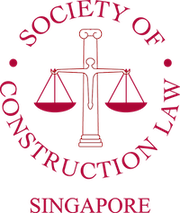Articles
- Details
- Hits: 1130
Beyond the Standard: The Need for Southeast Asian Delay Analysis Guidelines
Delay expert evidence remains a key topic in construction law. Yet analysing delays in large-scale projects is complex and time-consuming, prompting courts and legal teams to rely on delay experts for guidance.
Experts often present varied and sometimes opposing views, and reference industry guidelines and protocols that may not account for the unique cultural and practical dynamics of Southeast Asian construction projects.
Delay Analysis
While standard references can be persuasive, the inclusion of a method in the SCL (UK) Delay & Disruption Protocol does not automatically validate its appropriateness for a specific case. In many instances, they can be misleading because of omission of what is not being mentioned or emphasised.
Unless the judges or arbitrators have experience in the delivery of construction projects and a deep knowledge of planning & scheduling, the significance of what is not being mentioned or referred to by the delay experts may not be obvious.
Understanding how courts rely on standard references is key to mitigating this risk and enables experts to strengthen the credibility and effectiveness of their delay analyses in construction disputes.
A lack of evidence can easily lead to inaccurate conclusions, even with refined methodologies. Therefore, experts must always strive to gather and present high-quality evidence to support their analyses.
The Role of Contemporaneous Evidence in Delay Analysis
The purpose of courts and tribunals is to understand the events that took place on site as well as the motivations of the parties' decisions.
Contemporaneous evidence, especially programmes, is therefore an essential component. It measures deviations from planned schedules, reveals parties' views on causation, and addresses issues of criticality.
With change being a known constant in construction, scope alterations, sequencing shifts, methodology challenges, and resource changes all necessitate adjustments to the plan – and these factors should all be reflected in contemporaneous schedules.
High-quality contemporaneous schedules enhance delay analysis accuracy and credibility by showing completed work, remaining tasks, and the contractor's completion strategy. This allows for precise identification of critical paths, calculation of delays between status updates, and determination of change impacts.
Established Methodologies and Their Limitations
Well-known texts like the SCL (UK) Delay and Disruption Protocol, AACEI Recommended Practice, and books by industry experts provide helpful guidance on delay analysis.
These resources offer valuable insights for legal practitioners, courts, and tribunals, providing expert advice on technical matters.
Delay experts often cite these authorities before courts and tribunals. These texts sometimes offer definitive opinions on specific issues, often emphasising the importance of contemporaneous schedules for accurate analysis.
For example, AACEI 29R-03 states:"… the preference of every analyst should be to use the contemporaneous schedules and updates as they were prepared, reviewed, or accepted … these schedules, even though not perfect, are the best representation of the parties' objectives and understanding of the project contemporaneously …"
However, these authorities have limitations. Typically, their authors work in jurisdictions where project schedules are common and reliable.
The average schedule quality in these areas often surpasses those found in Southeast Asia. Consequently, the authors' views and recommendations may reflect practices from their professional experience, which may not apply universally.
The South-East Asian Context
In Southeast Asia, including Singapore, the regular and proper use of construction programmes to manage the delivery of projects and coordinate works on site is rare. In some instances, no programmes are used at all.
Additionally, construction projects in many countries in Southeast Asia are delivered by international contractors from different countries. These contractors have their own unique cultural practices and methods of planning and coordinating their works.
A not uncommon scenario in Southeast Asia is one where employers request contractors to only status the accepted baseline program. These same employers also tend to be reluctant to accept revised programmes in fear of giving away their contractual rights.
The issue that arises in these instances is that regular statuses give the impression that the delay analyst has access to a good set of contemporaneous programmes. However, one must carefully study how these programmes were updated and determine the quality of these contemporaneously prepared programmes.
This can be attributed to various factors, including cultural differences, priority on costs, and the perception of programmes as a time-consuming and unnecessary expense.
These unique challenges in Southeast Asia make it difficult for many construction projects to have comprehensive and up-to-date programmes, which in turn makes it difficult to conduct rigorous delay analyses.
Final Thoughts
Over the past decade, working on Southeast Asian construction projects and disputes, I've seen how challenging it can be to extract meaningful schedules from contractors during the delivery of live projects.
Counsel and tribunals struggle to sort through project documents and determine relevance, even with guidance from referenced authorities.
Despite my desire to improve planning and programming quality in Southeast Asian construction projects, cultural shifts in mindset and practices take time.
In construction disputes, we deal with past events we cannot change. Considering unique local practices and cultural dynamics is crucial when assessing contemporaneous schedule quality and relevance in Southeast Asia. To help courts, tribunals, and counsel navigate referenced authorities, adding regional-specific riders to established guidelines such as the SCL (UK) Delay & Disruption Protocol could be valuable.
The rider should:
- Explain unique regional practices and cultures.
- Emphasise objective assessment of schedule quality.
- Provide guidance on determining how regional practices affect contemporaneous schedules' intent, quality, and relevance.
- Recommend amendments to existing guidelines to address regional differences.
I recognise that regional differences in cultures, practices, and mindsets affect more than just contemporaneous schedule - but also to wider issues such as contractual procedural requirements, global claims, disruption claims and perhaps even the evaluation of time-related compensation.
The question remains: What are the next steps?
Contributed by:
Trevor Lam - Partner, TBH; Chair, SCL (Singapore)


